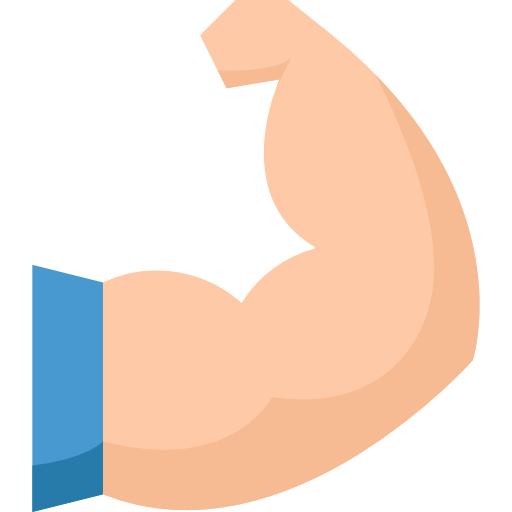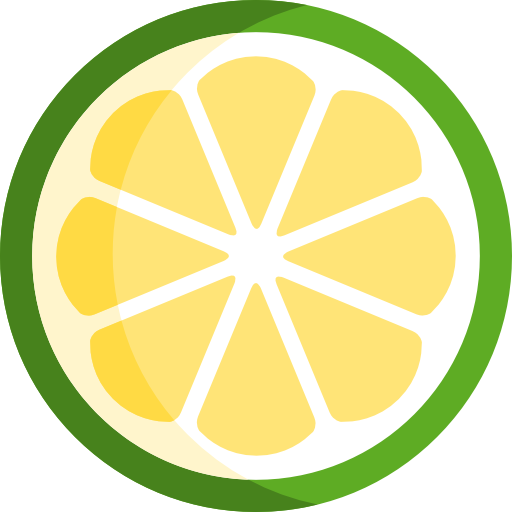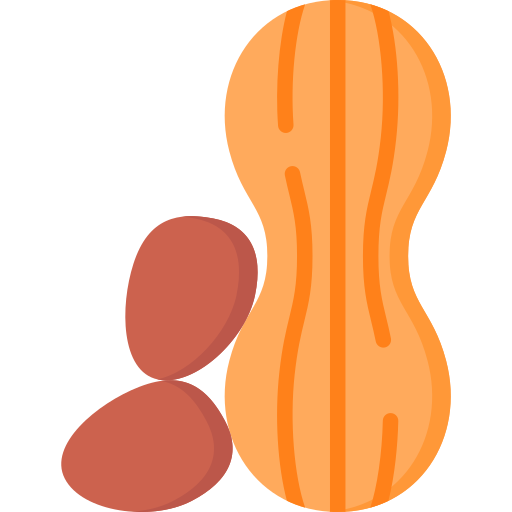 A vegetarian can’t do a lot of sports, be strong and build muscle.
A vegetarian can’t do a lot of sports, be strong and build muscle.
WRONG !
Being a vegetarian or a vegan and doing sports is totally possible, for both cardio-trainings and strength activities.
What does the body need during and after a training?
 Macronutrients
Macronutrients
 Carbohydrates = energy required during the effort (more during intensive efforts)
Carbohydrates = energy required during the effort (more during intensive efforts) Fats = energy required during the effort (more for long efforts)
Fats = energy required during the effort (more for long efforts) Proteins = they are useful before and after a training, for muscular reconstruction. You need to eat enough for your muscles to get stronger and develop.
Proteins = they are useful before and after a training, for muscular reconstruction. You need to eat enough for your muscles to get stronger and develop.
 Micronutrients
Micronutrients
 Vitamins (A, B, C, D, E etc…), minerals & trace elements the body needs to work.
Vitamins (A, B, C, D, E etc…), minerals & trace elements the body needs to work.
For an athlete, it is even more important to have a very diversified and balanced diet, not to lack any nutrient. Indeed, an intense physical activity requires even more of them. Minerals are substances such as : calcium and magnesium, and trace elements are : iron, zinc, copper, iodine (non-exhaustive list).
Minerals are substances such as : calcium and magnesium, and trace elements are : iron, zinc, copper, iodine (non-exhaustive list).
Therefore, your diet must be rich and diversified to ensure that you get all the vitamins, minerals and trace elements necessary, mostly if you do very intensive workouts.
What do we need to care about?
There are 2 situations where you’re going to have to be more careful: If you are VEGAN: be more careful about your proteins and micronutrients intakes. Regarding carbs and fats, it’s quite easy
If you are VEGAN: be more careful about your proteins and micronutrients intakes. Regarding carbs and fats, it’s quite easy  Check out our page about vegetal proteins and the one about fats here
Check out our page about vegetal proteins and the one about fats here
 If you practice WEIGHT LIFTING and other high intensity activities for your muscles (crossfit etc)
If you practice WEIGHT LIFTING and other high intensity activities for your muscles (crossfit etc)  Check out our page about vegetal proteins and the one about fats here
Check out our page about vegetal proteins and the one about fats here
Examples of good macronutrient sources:
 CARBOHYDRATES
CARBOHYDRATES
We find them in leguminous plants, cereals, fruits, juices and everything that tastes sweet.
But the carbs you should foster are complex carbs. They are absorbed more slowly by the organism thanks to their constitution. They make you feel satiated longer, have more fiber and are more nutritive, even more if they are wholegrain based.
 BECAREFUL: all carbs (even complex) are not equal. Some have a low glycaemic index (GI), some others are moderate, and others have a high glycaemic index. Foods with a high GI make your insulin rate go high very quickly, cause more hunger and can with time, cause obesity and diabetes. On the contrary, foods with a low or moderate GI are more satiating and are often more interesting on a nutritional aspect.
BECAREFUL: all carbs (even complex) are not equal. Some have a low glycaemic index (GI), some others are moderate, and others have a high glycaemic index. Foods with a high GI make your insulin rate go high very quickly, cause more hunger and can with time, cause obesity and diabetes. On the contrary, foods with a low or moderate GI are more satiating and are often more interesting on a nutritional aspect.
 Examples of interesting carbs
Examples of interesting carbs
Wholegrain pasta, wholegrain rice, quinoa, bulgur, lentils, red beans, fruits (whole), sweet potatoes, oat, dried fruits …
 Examples of carbs to avoid
Examples of carbs to avoid
Either because they have a high GI or because they are not nutritive: refined products (white pasta, white rice, white flour), sweetened drinks, industrial crakers, flavoured yogurts, low cacao chocolate, morning cereals, alcohol etc…
 Juices: They benefit from a very good reputation in the consumer’s spirit when they are actually real sugar bombs. We are not saying we have to stop drinking them at all, however it is important to be aware that a juice no longer has fiber (whether it is homemade or industrial). Therefore, all the sugar it contains goes directly into your system. Fibers being destroyed, it will not feed you and make you feel hungry pretty quickly. Yes, if it is fresh, it will at least contain some vitamins. For your information, orange juice contains as much sugar as any soda.
Juices: They benefit from a very good reputation in the consumer’s spirit when they are actually real sugar bombs. We are not saying we have to stop drinking them at all, however it is important to be aware that a juice no longer has fiber (whether it is homemade or industrial). Therefore, all the sugar it contains goes directly into your system. Fibers being destroyed, it will not feed you and make you feel hungry pretty quickly. Yes, if it is fresh, it will at least contain some vitamins. For your information, orange juice contains as much sugar as any soda.
 FATS
FATS
Vegetal oils (olive, rapeseed, sunflower, flax, nut, hazelnut), peanut butter, almond butter, cashew or hazelnut butter, tahini, oleaginous fruits (almonds, nuts, hazelnuts, peanuts, pistachio, cashew, Brazil nut, pecan etc…), eggs, cacao (black chocolate with the highest % possible), grains (flax, chia…) avocadoes, etc …
 PROTEINS
PROTEINS
Soy (tofu, yogurts, tempeh, steaks…), seitan, hemp, pumpkin seeds, peanuts & natural peanut butter, red or azuki beans, nuts, cashews, chickpea, chia grains, spelt, quinoa, oats, cereals, leguminous plants, eggs, dairy, ora pro nobis, spirulina …
You can also take complements such as protein powder (vegetarian or vegan) often made of peas and rice protein. It still is a processed product, but still an option that is up to you.
 Benefits on athletes
Benefits on athletes
Some athletes have reported that a plant-based diet allowed them to develop more muscular mass, but mostly improved their performances and allowed them to have a better post workout recovery than before.
Among them, some very famous athletes are vegans or vegetarians such as :
– Carl Lewis (athletism)
– Venus et Serena Willians (tennis)
– Mike Tyson (boxing)
– Surya Bonaly (ice skating)
– Patrick Baboumian (bodybuidling)
– Lewis Hamilton (Formula 1)
Just to mention a few.
 THE GAME CHANGERS
THE GAME CHANGERS
New documentary available on Netflix that generated a great emulation when it went out. This documentary is focused on plant-based diets and sports performances.
It stages several sports people, their testimonies and feedbacks.
Even if we think that only the sports/performance sides of plant based diets cannot by themselves lead to a sustainable motivation to turn vegan, it highlights very well its benefits and creates a strong interest in a new group of people.

For more detailed information, check our NUTRITION section Proteins
Proteins Lipids, iron, calcium and others
Lipids, iron, calcium and others
